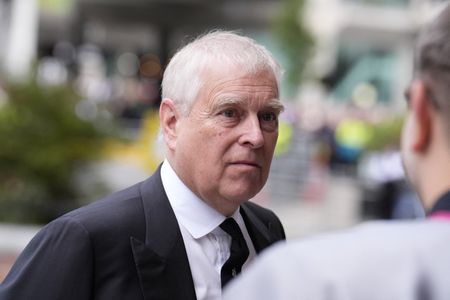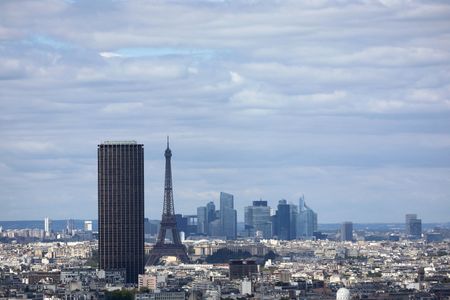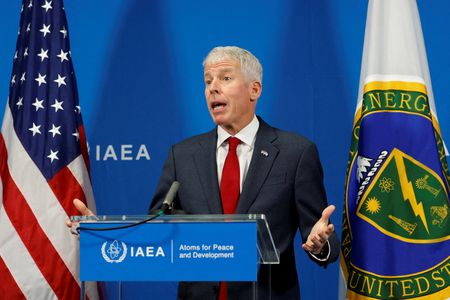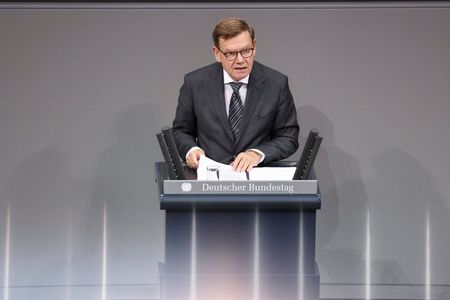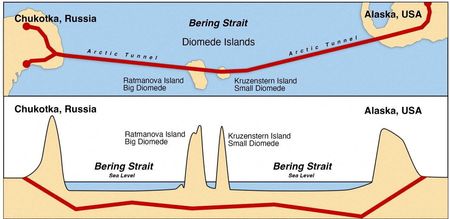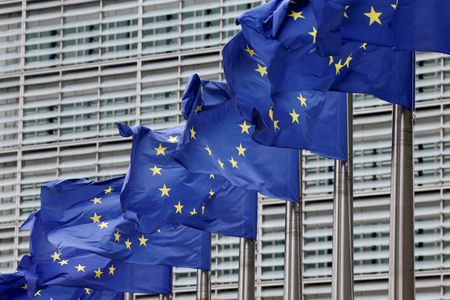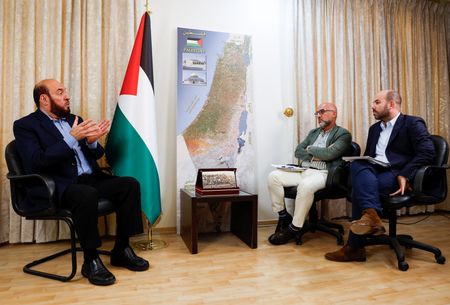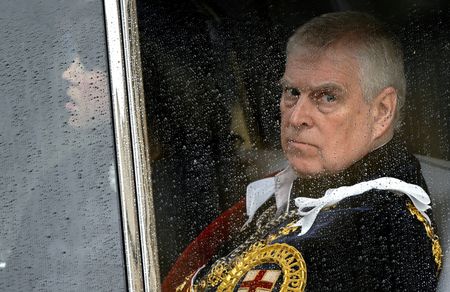By Michael Holden
LONDON (Reuters) -Britain’s Prince Andrew said on Friday he would give up using his title of Duke of York following years of criticism about his behaviour and connections to the late U.S. sex offender Jeffrey Epstein.
The reputation of Andrew, the younger brother of King Charles and second son of the late Queen Elizabeth, has taken a battering in recent years, most notably because of his links to Epstein.
A court ruling last year also revealed that the British government believed one of his close business associates was a Chinese spy. Andrew at the time said he had stopped all contact with the businessman.
ANDREW SAYS HE IS PUTTING COUNTRY FIRST
In a statement on Friday, Andrew said “the continued accusations about me” distracted from the work of his elder brother King Charles and the wider work of the British royal family.
“I have decided, as I always have, to put my duty to my family and country first. I stand by my decision five years ago to stand back from public life,” Andrew said.
“With His Majesty’s agreement, we feel I must now go a step further. I will therefore no longer use the title or the honours which have been conferred upon me. As I have said previously, I vigorously deny the accusations against me.”
His decision to give up his titles was taken following discussion with senior royals. The king was glad about the outcome, according to a royal source.
Andrew, 65, the eighth-in-line to the throne, was once regarded as a dashing naval officer and served in the military during the Falklands War with Argentina in the early 1980s.
But he was forced to step down from a roving UK trade ambassador role in 2011, before quitting all royal duties in 2019 and then was stripped of his military links and royal patronages in 2022 amid allegations of sexual misconduct which he has always denied.
That year, he settled a lawsuit brought by Virginia Giuffre, who died in April, which accused him of sexually abusing her when she was a teenager. Andrew has always denied her account, which has returned to prominence in the last week with the release of her memoir.
In her book, she said “entitled” Andrew believed it was his birthright to have sex with her, according to extracts published by the Guardian newspaper.
“Things are simply not going away,” royal biographer Robert Hardman told BBC TV. “And I think the palace has decided, and Prince Andrew has agreed, that there really has to be a further separation.
“He wants to look as if he’s proactive and try and regain some dignity out of this.”
BRITONS SUPPORT STRIPPING ANDREW OF TITLES
According to a recent poll by YouGov, 67% of Britons supported stripping Andrew of his remaining royal titles, with 13% opposing the move. A separate survey found only 5% of respondents had a favourable view of him.
Andrew, who had already given up being called “His Royal Highness”, still remains a prince and will continue to live in Royal Lodge, a large property on the estate surrounding Windsor Castle, a historic royal palace to the west of London.
However, he will no longer attend the annual royal Christmas get-togethers at Sandringham, the royal home in eastern England.
His daughters Princesses Beatrice and Eugenie will be unaffected, but his ex-wife Sarah Ferguson will also no longer be known as the Duchess of York.
In September, several charities cut their links to her after she described Epstein as a “supreme friend” in an email three years after he had pleaded guilty in 2008 to a state prostitution charge in Florida and agreed to register as a sex offender.
In addition to the ties to Epstein that dogged him, Andrew’s business relations have also proved problematic.
Last December, court documents revealed that a Chinese businessman who had been authorised to act on Andrew’s behalf to seek investors in China had been banned from Britain on national security grounds.
The documents revealed the businessman, who the British government believed to be a spy, had been invited to Andrew’s birthday party.
The British royal family has seen its working numbers diminish in the last few years, with the king’s younger son Prince Harry and his wife Meghan having also stepped down from official duties.
While Andrew’s title will be inactive rather than taken away, historian Anthony Seldon told the BBC that the last time a senior royal was stripped of a dukedom was more than 100 years ago.
“Looking historically, this is a very, very significant step,” Seldon said.
(Reporting by Michael Holden; Editing by Chris Reese and Deepa Babington)

